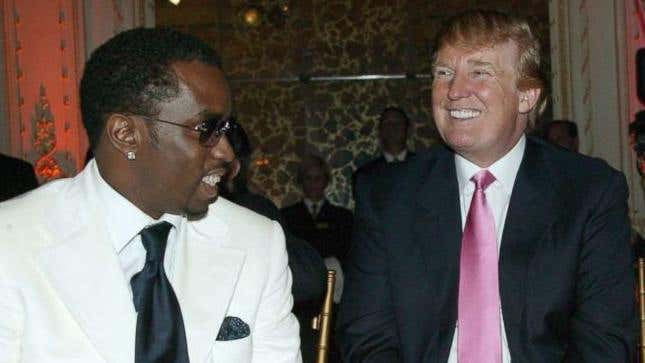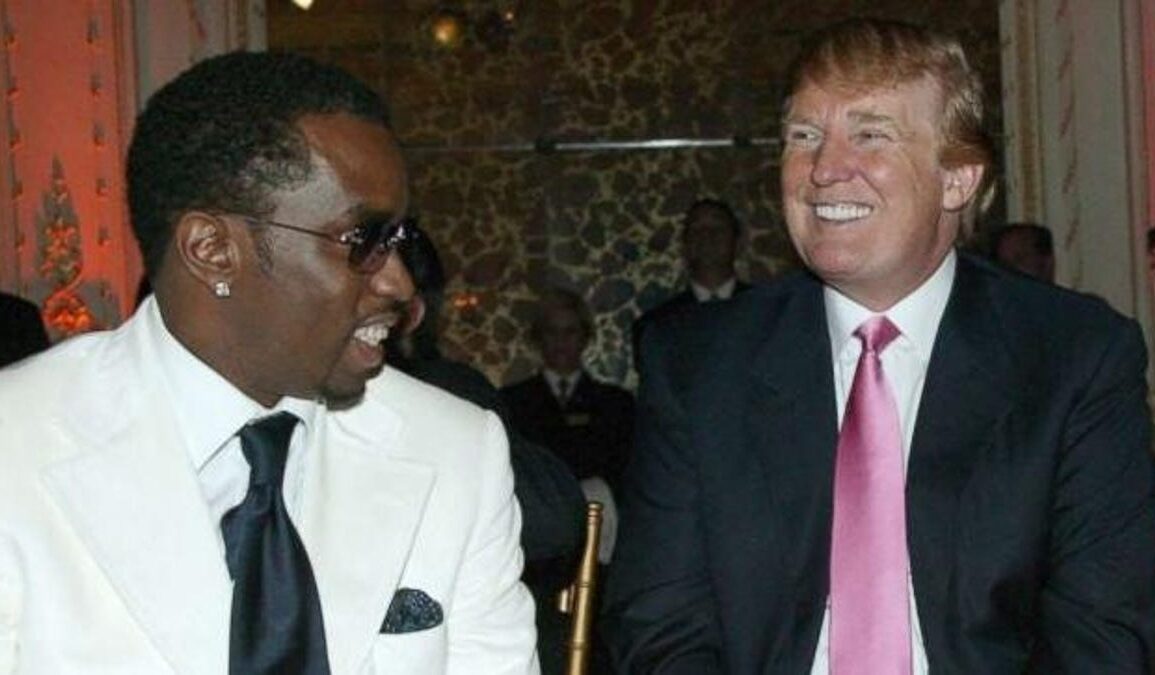
The evolution of hip-hop’s relationship with Donald Trump has all the sinister plot twists of Get Out. Once upon a time, Trump was hip-hop’s gold-plated mascot of wealth. But as his true colors started to run—much like Giuliani’s hair dye in a heat wave—we can see that Trump is a great instigator of societal ills. Over the past 35 years, hip-hop’s conversation about #45 has gone from “money and power” to an exasperated “What did this agent of chaos do now?”
Suggested Reading
Suggested Reading
Early Era: Trump as a Symbol of Wealth
Before Donald Trump traded in his TV gig for the Oval Office, he was often referenced in hip-hop as a symbol of power and success. Songs like Mac Miller’s “Donald Trump” (2011) and Rae Sremmurd’s “Up Like Trump” (2015) used his name to signal opulence and ambition. Trump was the guy you compared yourself to when you wanted to flex a few financial muscles.
“Lie-Z” by The Fat Boys (1989):
“Boy, I got money like Donald Trump!”
“Skypager” by A Tribe Called Quest (1991):
“Beeper’s goin’ off like Don Trump gets checks.”
“Shut Up Bitch” by Lil’ Kim (2005):
“I’m in the Trump International, 30 floors up.”
2016 – 2017: The Shock of Trump’s Election
After Trump’s hate-based presidential campaign and subsequent election, many in the hip-hop community reacted with a pungent mix of disbelief and outrage. YG and Nipsey Hussle’s “FDT (F*** Donald Trump)” became an anthem of protest, capturing the sentiments of many who were deeply dismayed by Trump’s victory and all the ways his distorted rhetoric emboldened Karens and other racists. Songs of this era became the musical equivalent of that middle finger emoji.
“Black Barbies” by Nicki Minaj & Mike WiLL Made-it (2016):
“Island girl, Donald Trump want me go home.”
“Spar” by Dreezy, ft. 6lack & Kodak Black (2017):
“They disregarding us and if I go to D.C., I’m tryna spar with Trump.”
“Land of the Free” by Joey Badass (2017):
“Obama just wasn’t enough, I just need some more closure / And Donald Trump is not equipped to take this country over.”
2018-2020: The Trump Presidency
During Trump’s time in office, hip-hop continued to speak its mind. Rapsody’s “12 Problems” is a perfect example: the rapper tackled police brutality and systemic racism, putting a spotlight on the heightened tensions that were prominent during Trump’s presidency. The conversation also extended to broader social justice issues with artists like Noname taking on patriarchy and the silencing of women’s voices on tracks like “Song 33.” This era brought a surge of politically charged music, with artists using their platforms to advocate for immediate change.
“Veins” by Earl Sweatshirt (2018):
“Stuck in Trump Land, watching subtlety decayin’”
“The Adventures of Moon Man and Slim Shady” by Kid Cudi & Eminem (2020):
“Fuck’s going on man? Bunch of half-wits up in office.”
“Real One” by G Herbo ft. Lil Durk (2020):
“I can’t blame the judge and state’s attorney, ‘cause both of ‘em voted for Trump.”
2021-Present: Post-Presidency & New Campaign
As Trump left office, the political and cultural climates in this country were reeling from unrelenting injustices. The murders of Breonna Taylor and George Floyd highlighted deep systemic issues, while the fight against “alternative facts” forced us to navigate a global pandemic under botched leadership. We also had to endure a fallen president who refused to accept his loss as anything other than “fake news.” Hip-hop expressed its disdain for Trump’s tenure, particularly the long-term effects his policies would have on disempowered communities. When he announced a new presidential run, Kendrick Lamar’s “The Heart Part 5″ captured the complex emotions of a society grappling with the possibility of another Trump presidency.
“State of the Union (STFU)” by Public Enemy (2020):
“White house killer, dead in lifelines. Vote this joke out, or die tryin’”
“Plead the .45th” by Smino & Saba, (2021)
“Runnin’ from pagans, runnin’ with Reagan, now they with Donald Trump.”
“SHELTER” by Vic Mensa ft. Wyclef Jean & Chance the Rapper (2021):
“Tell me why it ain’t no trauma units when everyone is traumatized.”
As the music industry’s relationship with Trump has evolved from viewing him as a power player to becoming a supervillain, one thing hasn’t changed: artists remain necessary in society by giving voice to the world around us and calling bullshxt whenever necessary.
Take it as a warning. (“Black Parade” by Beyoncé, 2020).
This post was originally published on this site be sure to check out more of their content.







